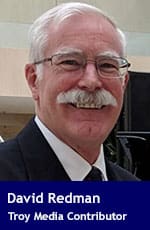Canada faces a national identity crisis. Unity, rooted in shared values, is the key to a strong and independent nation

For interview requests, click here
National unity—built on shared ethics and values—is the cornerstone of a strong and independent nation. Without unity, a nation risks fracturing into smaller, weaker entities, vulnerable to both external threats and internal collapse. Canada’s unity is under threat, and immediate action is needed to protect the country’s foundation.
For over a decade, Canada has been led by a government that has failed to prioritize national unity. Prime Minister Justin Trudeau has downplayed the importance of a cohesive national identity, referring to Canada as a “post-national state.” This dismissive attitude undermines the vital role unity plays in maintaining a strong democracy and safeguarding sovereignty. Recently, in the face of economic and geopolitical pressures, Trudeau has reversed his stance—now calling for the defence of Canada as a sovereign nation. This inconsistency highlights a lack of credible leadership and genuine commitment to the country’s core principles.
Unity is not a relic of the past—it is the bedrock upon which nations are built. Historically, unity has been forged through shared ethics, values and beliefs. In Canada’s case, these values include respect and compassion rooted in Judeo-Christian traditions, equality for all people, confidence in parliamentary democracy, and a belief in individual rights balanced by mutual aid. These values have guided Canada’s development, shaping it into a nation admired for its civility, resilience and innovative spirit.
 Without shared values, Canada risks losing its identity. |
| Recommended |
| The tragic missteps that led to our housing crisis
|
| The alarming reality of Trudeau’s immigration policy
|
| Immigration can help solve Canada’s economic challenges
|
However, unity does not occur by accident. It requires deliberate policies that promote integration and a shared purpose. Today, Canada’s unity is being undermined by uncontrolled immigration, foreign interference, and divisive government programs. When managed properly, immigration can enrich a nation, bringing new energy and ideas. But when immigration is unchecked and unaligned with shared national values, it creates conflict and division. Canada’s current policies fail to prioritize integration, leaving new arrivals and established citizens at odds over foundational beliefs.
The consequences of this failure are far-reaching. Uncontrolled immigration can lead to one of four outcomes: a difficult and disruptive conversion of new arrivals to Canadian values, the removal of those who cannot integrate, a transformation of Canadian values themselves, or the eventual destruction of Canada as we know it. None of these outcomes is desirable—and all stem from a lack of leadership and vision.
A cohesive immigration policy is essential for preserving Canada’s unity. New arrivals should be welcomed into a country with clear, defined ethics and values. They should come not to reshape Canada but to join in its shared ideals. Controlled immigration, based on integration into these values, is a path to unity. Uncontrolled immigration invites chaos, division and the potential collapse of national identity.
The issue of unity extends beyond immigration. Domestically, policies and programs that divide Canadians into hyphenated identities must be reconsidered. Taxpayer-funded multicultural programs that emphasize differences over shared values weaken the bonds that hold the nation together. Canadians should see themselves first and foremost as “Canadians,” united by a common identity—not splintered into competing groups.
Canada’s history provides valuable lessons about the power of unity. The country’s ethics and values were shaped by geography, climate and historical challenges. From the harsh northern winters to the demands of a pioneering past, Canadians developed resilience and mutual aid. These traits are uniquely Canadian and have allowed the nation to thrive in the face of adversity. Parliamentary democracy—blending influences from France and Britain—reflects a respect for diversity while fostering a unified national identity.
It is this unity that has made Canada a beacon for immigrants and a respected democracy. But unity is not self-sustaining—it must be defended against those who would attack or undermine it, whether through foreign interference, divisive rhetoric or misguided policies. Canada’s ethics and values must be taught in schools, celebrated in public life, and reflected in government policy.
Leadership is critical in this effort. Politicians who fail to uphold and defend Canada’s core values should not hold office. Their inability to articulate and adhere to these principles disqualifies them from representing the nation. Citizens must demand accountability and transparency from their leaders, ensuring those in power are committed to preserving Canada’s unity and sovereignty.
Canada’s unity is not just a matter of cultural pride—it is a strategic necessity. Without unity, the country cannot stand firm against external pressures or internal divisions. The lessons of history are clear: nations that lose their unity lose their strength, independence and democracy. Canada must not follow this path.
As Canadians, we have a responsibility to protect and promote the shared ethics and values that define our nation. These values—respect, compassion, equality, democracy, self-reliance, and mutual aid—are what make Canada unique. They are worth fighting for, not only for ourselves but also for future generations.
It is time to reclaim Canada’s unity. By strengthening our shared identity, adopting clear and fair immigration policies, and rejecting divisive programs, we can ensure Canada remains strong and free. The nation’s future depends on it.
David Redman had a distinguished military career before becoming the head of the Alberta Emergency Management Agency in 2004. He led the provincial response to the devastating floods of June 2005 and the team in developing the 2005 Provincial Pandemic Influenza Plan. He retired in 2013. This commentary was submitted by the Frontier Centre for Public Policy.
Explore more on Federal politics, Immigration, Multiculturalism, Trudeau government
Troy Media is committed to empowering Canadian community news outlets by providing independent, insightful analysis and commentary. Our mission is to support local media in building an informed and engaged public by delivering reliable content that strengthens community connections, enriches national conversations, and helps Canadians learn from and understand each other better.
